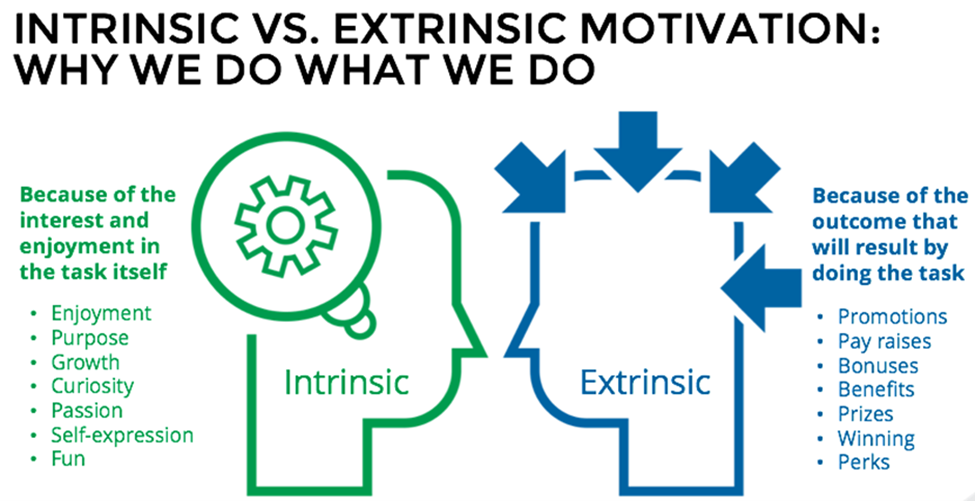
Motivation is just one factor to consider when looking at performance development, explains Sarah Richson
We’ve all fallen victim to watching the likes of Oprah and Tony Robbins and buying a bunch of self-help books to get the motivation needed to not only succeed but to go above and beyond in reaching our goals to the best of our abilities. But what causes this drive and how can it be implemented into the career of an Assistant?
Let’s start with the basics.
What Is Motivation?
Well, motivation derives from the word ‘motive’, which essentially means needs, wants or drives. So motivation is what pushes, causes or directs someone to do something, behave in a particular way and even repeat certain actions and behaviors. Depending on what kind of personality you have, you will have a different kind of motivation.
There are two kinds of motivation: intrinsic (internal; inside of you) and extrinsic (external; around you).

Intrinsic Motivation
Intrinsic motivation is a drive that comes from within. The motivation can stem from several things, such as passion, a personal goal, fun and curiosity to name a few. There’s no outward, tangible ‘reward’ per se, but rather the reward of satisfying oneself internally.
For example, I could start a blog simply because I love writing. That’s it. Not for the sake of recognition or money but simply because it’s something I love to do and want to share with others.
Intrinsic motivation is long-term and is considered very powerful. American graphic designer and Oscar-winning filmmaker Saul Bass put it best when he said, “I want to make beautiful things, even if nobody cares”. There’s a part of your identity and personality that push you to do certain things. Think of it as a continuous source of motivation.
One of the biggest obstacles for intrinsic people is negativity. You can’t always help the people you’re surrounded by in a working environment; even your fellow Assistants may have a pessimistic view on the essential work that they do. These kinds of thoughts can cast a cloud on your safe haven and taint your way of thinking and perception. This can result in stunted motivation.
Most people who can’t imagine it, reflect. It’s like a mirror. They put that right on you. If they can’t see themselves doing it: I can’t see you doing it, I take that mirror and I totally discard it.
David Goggins
As Assistants, you’ll face an array of challenges and misconceptions about your career choice, but that doesn’t mean accepting negativity. Be the change to the negative influences by leading through positive behaviors, and don’t be afraid to seek out a mentor for guidance.
Extrinsic Motivation
This is the drive to complete a task for any other reason than the actual work itself. This could be anything you’re guaranteed to get after completing a job or task, such as a free item, extra time off, extended time doing an activity you love or a trophy to name a few – but it goes without saying that money is the best and most common extrinsic factor.
The downside is that if the reward remains the same, it can start to lose its ‘wow factor’, meaning that people stop being as motivated to complete certain jobs because as humans our wants are endless. As individuals, we’re always looking for more. The only way for extrinsic motivation to maintain itself long-term is to connect it with something intrinsic, such as feeling acknowledged or recognized for the work you do; you may not have a passion for the tasks at hand, but it doesn’t deter from the fact that you work hard at getting them done and getting them done well.
We’ve all heard about how intrinsic motivation is the ‘best’, but we forget two things:
1. Not everyone is built to be intrinsically motivated
So what? Does that mean some of us are better than others? No, because of this second point:
2. Intrinsic motivators have their cons too
You see, being internally motivated means that our motivation is linked to our emotional and mental state, and when things get tough, they’re not always the best factors to rely on.
Let’s use the blogging scenario. Remember, I started a blog because I was passionate about writing. Well, let’s say my child gets sick and I’m stressed. That could put me in a state of writer’s block, and then what? What do I use to motivate me to write when I physically cannot think of anything but my poorly child? You see, internal motivation alone cannot be our only source of ‘fuel’ to get the things we need to do done, especially in the life of an Assistant who has someone else depending on them round the clock.
How Do I Determine What Motivates Me to Continue to Perform?
Let’s take a look.
First things first, relying on just one element to motivate you can be overwhelming, whether that’s from an external point of view such as money or an internal point of view such as a passion. So it’s essential to think about ALL the different things that motivate you to get work done.
Then we need to look at the holy trinity: motivation, momentum and discipline.
Momentum deals with how we get things done, and that can stem from something as simple as how we start our day; have you created an environment that encourages motivation to work? Simple things such as a walk in the middle of the day can help build up momentum that’s been lost and push you to keep going throughout the day.
Discipline is an essential practice that we all need. Motivation is based on our feelings, so it comes and goes; however, discipline requires intention. When motivation fails, discipline is something we must enforce to keep moving forward. Discipline is the truest form of self-love you can teach and practice with yourself.
When it comes to motivation, we can look at it in two ways:
1. Motivation is like a matchstick
It can start the fire, but it can’t keep the fire going (hence the holy trinity). You need coal, wood and/or gasoline… we need more than just motivation to keep the fire burning, to keep us performing at our best.
2. Motivation is like nitrogen to a car
It can run without it (just as you can get your work done by simply being disciplined, for example), but that nitrogen gives the car a boost like nothing else, just as motivation can spark a whole new level of thinking and creativity – even within projects that you may not necessarily be the most passionate about.
Conclusion
And with that, my loving community of Assistants, I ask you to determine how you perceive motivation and to look deep within yourself and discover all the things that motivate you to perform. Remember the holy trinity and go out there and knock ’em dead!













